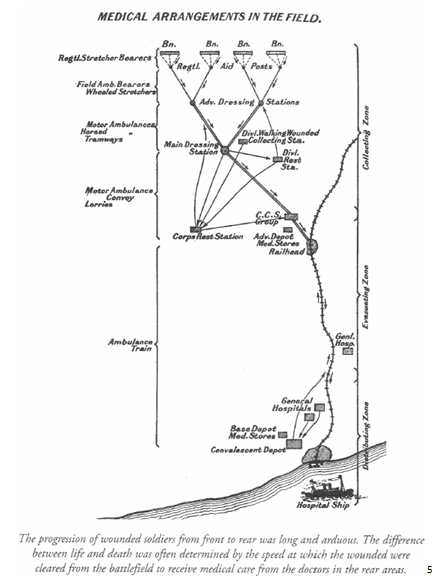Tuesday, June 15, 1915
Rest Billets, Bethune
The Battalion War Diarist wrote for day: “Battn. ordered to stand to.”[1]

THIS DAY IN RMR HISTORY: “No. 2 Stationary Hospital was granted the distinction of being the first of all Canadian units to place foot upon French soil. This unit, under Lieutenant-Colonel Shillington, after the inspection by Their Majesties the King and Queen two days previously, left the Plain on November 6th, 1914. At Southampton the O.C. was detained by arrangements concerning the nursing sisters, and thus it devolved upon Major H. C. S. Elliot,61 the second in command, to take the unit across the Channel to Havre. For a few days it was billeted at Boulogne. On November 27th it opened up the well-known Hôtel du Golf at Le Touquet, on the dunes near Paris Plage, as a hospital of three hundred beds – the first of a series of Canadian base hospitals along the French coast between Boulogne and Dieppe.” [4]

Starting with 320 beds, the hospital quickly expanded to 520. The Nursing Staff of 35 had arrived in November of 1914. In March 1915, 10 re-inforcements arrived, increasing the total Nursing Staff to 42. In September, 1915, the unit moved to Outreau, taking over the site of No.2, British Stationary Hospital.
In his book “At The Sharp End,” in a chapter on battlefield medicine, Tim Cook writes about the work of the Canadian Army Medical Corps during the first two years of the First World War. He illustrated the long and arduous progress of wounded soldiers with this schematic chart. He points out “The difference between life and death was often determined by the speed at which the wounded were cleared from the battlefield to receive medical care from the doctors in rear areas.”[6]
“The Canadian Army Medical Corps grew from a pre-war strength of 20 officers, 5 nursing sisters, and 102 other ranks, to 1,528 officers, 1,901 nurses, and 15,624 other ranks, a 150-fold expansion.” [7]
[1] War Diary, 14th Canadian Battalion, The Royal Montreal Regiment, June 15, 1915. Library and Archives Canada, Ottawa http://data2.collectionscanada.ca/e/e044/e001089758.jpg
[2] http://militarybadgecollection.com/wp-content/gallery/univ-hq-depart/E39-11,%20Canadian%20Army%20Medical%20Corps,%20Inglis.JPG
[3] https://derbyshireterritorials.files.wordpress.com/2013/11/no2-canadian-hospital.jpg?w=960
[4] Colonel J. George Adami, M.D., “War Story of the Canadian Army Medical Corps, Vol. 1, The First Contingent (to Autumn of 1915),” The Canadian War Records Office, London, 1918. http://digital.library.upenn.edu/women/adami/camc/camc.html
[5] Tim Cook, “At the Sharp End, Canadians Fighting the Great War 1914-1916,” Toronto, Penguin Group (Canada), 2007, pg. 197.
[6] Ibid
[7] Sir Andrew MacPhail, Kt., O.B.E., “Official History of The Canadian Forces in the Great War 1914-1919 - The Medical Services,” Ottawa, Minister of National Defence, F.A. Acland, Kings Printer, 1925, pp. 5-6.


